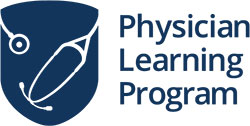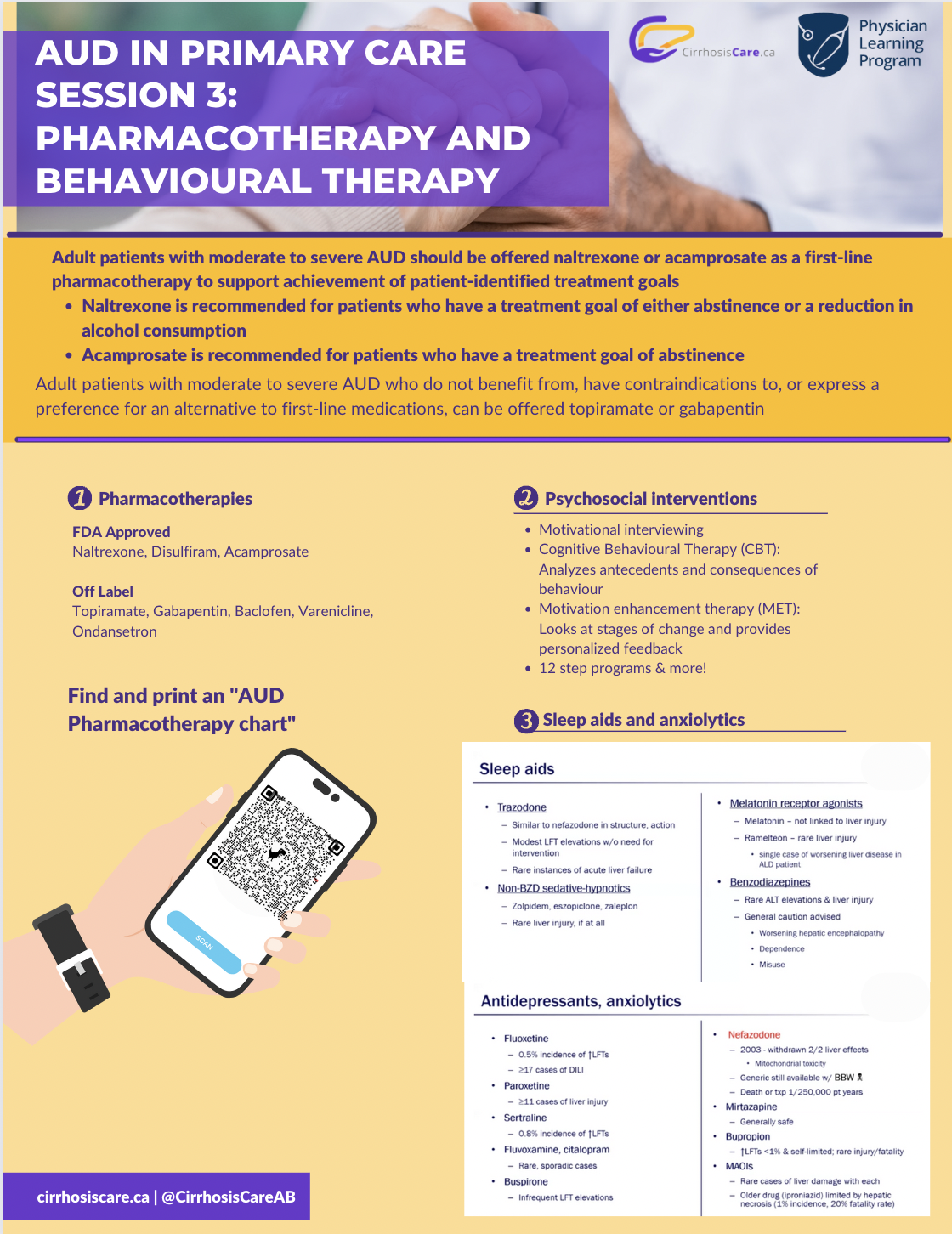

Session 2: Screening, Brief intervention (Motivational interviewing), and patient-centered goal setting
Learning objectives:
By the end of this session, participants will be able to:
1. Describe the AUDIT-C and how it can be used to provide patient-centered feedback
2. Apply motivational interviewing skills and use interactive tools (e.g. decisional balance table, scaling) with patients diagnosed with alcohol use disorder
3. Provide patients with a menu of therapeutic options depending on their readiness to change (e.g. managed alcohol use to abstinence)
Pre-recorded presentation
If you are experiencing issues with the audio for the “SBIRT in Action” video appearing at 19:00, click the following link: Watch Now!
Live presentation recording
Printable handout containing the top tips and resources from this session:
Additional resources
Definition of Addiction – American Society of Addiction Medicine
Motivational Interviewing – Alcohol Video
Helping Patients Who Drink Too Much: A Clinicians Guide
Screening and Assessment Tools Resource
The Alcohol, Smoking and Substance Involvement Screening Test
Retention Toolkit: Free MI Resource
Canadian Resources
Canada’s Low Risk Drinking Guidelines
Guidelines for Healthcare Providers to Promote Low Risk Drinking Guidelines
Alcohol in Canada: Canadian Centre on Substance Use and Addiction
Substance Use Treatment Centres for First Nations and Inuit
Practical Approach to Substance Use Disorders for the Family Physicians
Canadian Alcohol Use Disorder Society
Alberta Resources
Alberta Addiction Treatment Directory
Recovery Access Alberta: Treatment directory for patients and providers
Alcoholics Anonymous Meetings Alberta
Recovery Dharma Alberta: Using Buddhist Practices
United States Resources
Substance Use and Mental Health Services Administration
National Institute on Drug Abuse
US Preventative Services Task Force: Alcohol
National Institute on Alcohol Abuse and Alcoholism
Further Reading
Healthcare Teamwork: Interprofessional Practice and Education
Beyond the Checklist: What Else Healthcare Can Learn from Aviation Teamwork and Safety
A Definition and Approach To Motivational Interviewing
Managing Chronic Pain in Adults With or in Recovery From Substance Use Disorders
References
-
- US preventative task force; JAMA 2018
- Satre, D. D., Leibowitz, A. S., Leyden, W., Catz, S. L., Hare, C. B., Jang, H., Lam, J. O., Bryant, K. J., Weisner, C. M., Sterling, S. A., Horberg, M., Volberding, P., & Silverberg, M. J. (2019). Interventions to Reduce Unhealthy Alcohol Use among Primary Care Patients with HIV: the Health and Motivation Randomized Clinical Trial. Journal of general internal medicine, 34(10), 2054–2061. https://doi.org/10.1007/s11606-019-05065-9
- Miller, W. R., & Rollnick, S. (2012). Motivational interviewing: Helping people change. Guilford press.
- Mellinger, J. L., Scott Winder, G., DeJonckheere, M., Fontana, R. J., Volk, M. L., Lok, A., & Blow, F. C. (2018). Misconceptions, preferences and barriers to alcohol use disorder treatment in alcohol-related cirrhosis. Journal of substance abuse treatment, 91, 20–27. https://doi.org/10.1016/j.jsat.2018.05.003
- Winder, G. S., Fernandez, A. C., Klevering, K., & Mellinger, J. L. (2020). Confronting the Crisis of Comorbid Alcohol Use Disorder and Alcohol-Related Liver Disease With a Novel Multidisciplinary Clinic. Psychosomatics, 61(3), 238–253. https://doi.org/10.1016/j.psym.2019.12.004

